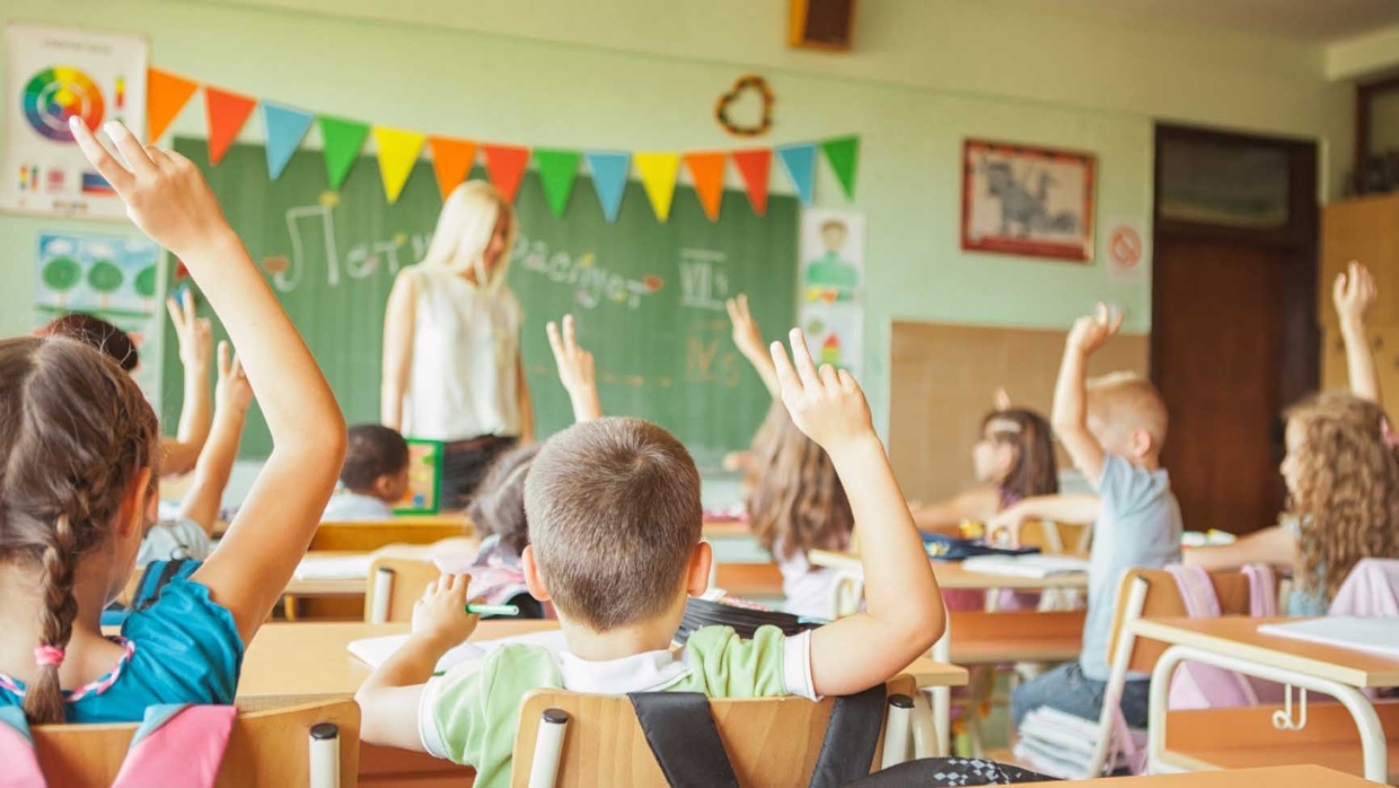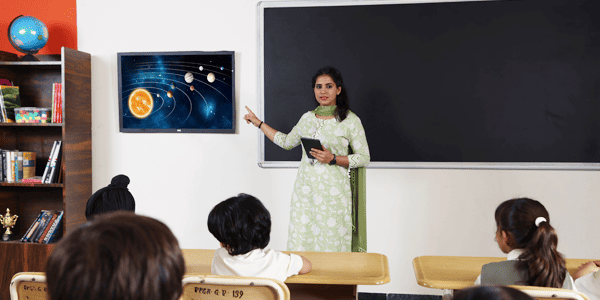Top Primary Science Tuition Singapore to Help Your Child Excel
Top Primary Science Tuition Singapore to Help Your Child Excel
Blog Article
Discovering the Different Training Techniques in Primary Science Education And Learning Today
The landscape of key science education is advancing, with different mentor strategies getting prominence in contemporary class. Inquiry-based understanding, hands-on experiments, and the integration of innovation are redefining how educators involve young minds. In addition, collective methods and set apart guideline are being utilized to satisfy the diverse requirements of pupils, enhancing both involvement and understanding. As we take a look at these approaches, questions occur regarding their performance and the effects for future academic techniques. What might these changes in approach mean for the next generation of learners?
Inquiry-Based Knowing
Inquiry-Based Learning (IBL) is an instructional technique that encourages pupils to explore clinical ideas with questioning, examination, and hands-on experimentation. This method highlights the function of students as energetic individuals in their discovering, advertising important reasoning and problem-solving skills. By engaging with real-world concerns, pupils end up being motivated and curious, which improves their understanding of scientific principles.
In IBL, instructors serve as facilitators, guiding pupils as they navigate their inquiries as opposed to providing details directly. This student-centered strategy enables for differentiation, suiting different learning paces and designs. Students develop abilities in developing hypotheses, creating experiments, and examining information, which are crucial for clinical literacy.
In addition, IBL fosters partnership among pupils, encouraging them to share concepts and findings. This cumulative query advertises social skills and a sense of area within the classroom. In addition, the process of questions motivates strength, as students discover to embrace failure as a tipping stone towards understanding.
Hands-On Experiments
Hands-on experiments are an important component of efficient scientific research education, matching the concepts of inquiry-based discovering. These experiments enable pupils to involve directly with scientific concepts, promoting a much deeper understanding via experiential knowing. By controling materials and observing end results, young students can grasp abstract theories in concrete ways.
Such activities promote critical thinking and analytic skills, as trainees assume outcomes, conduct experiments, and analyze results. This procedure urges them to ask questions, improve their understanding, and develop a scientific mindset. Additionally, hands-on experiments can be customized to varied understanding styles, guaranteeing that all trainees have the chance to involve meaningfully with the web content.
Furthermore, hands-on experiments typically urge cooperation among peers, advertising teamwork and interaction abilities. Functioning in teams enables pupils to share concepts, talk about findings, and pick up from one an additional, which improves their general educational experience.
Integrating hands-on experiments right into the main science educational program not only enriches the learning atmosphere however also grows a lifelong passion in science. By actively joining their education and learning, trainees are more probable to create an enthusiasm for clinical questions that extends beyond the classroom.

Modern Technology Integration
Integrating innovation right into primary science education has ended up being progressively essential in fostering trainee engagement and improving finding out results. The usage of digital devices, such as interactive simulations, online labs, and academic software program, supplies trainees with chances to explore scientific ideas in cutting-edge means. These sources assist in a deeper understanding of intricate subjects by enabling students to envision and control variables that would be unwise in a conventional classroom setting.
Additionally, technology integration urges individualized finding out experiences. Pupils can advance at their very own pace, taking another look at tough principles via multimedia sources, which deal with various discovering styles. This flexibility not just sustains private growth yet also cultivates a sense of freedom in students.
Furthermore, technology acts as a bridge to real-world scientific research, linking trainees with present study and expert payments. Access to online data sources and scientific journals broadens pupils' perspectives on clinical questions and promotes important thinking skills.
Collaborative Learning
Collective learning plays an essential function in primary science education by promoting synergy and interaction skills amongst students. This method motivates students to interact, share understanding, and take part in analytic, which improves their understanding of scientific ideas. By taking part in team tasks, pupils find out to articulate their concepts, pay attention to varied perspectives, and negotiate services, all of which are crucial abilities in both scholastic and real-world contexts.

Study shows that joint discovering can cause increased motivation and interaction in scientific research subjects, as trainees find satisfaction in common experiences (primary science tuition Singapore). Additionally, this strategy prepares students for future collaborative ventures, outfitting them with the abilities needed for efficient synergy in higher education and expert atmospheres. Inevitably, embracing collective learning in i loved this key science education and learning can dramatically improve the learning experience and advertise a much deeper understanding of scientific inquiry
Differentiated Direction

Set apart guideline can show up in various means, such as varying the web content, processes, or items of understanding. For example, teachers might use tiered tasks that give differing levels of complexity, permitting trainees to function at their particular preparedness degrees. In addition, versatile organizing techniques can help with collaboration amongst pupils with various abilities, fostering peer knowing.
Evaluation plays a crucial function in this technique, as it educates instruction and helps teachers comprehend each trainee's one-of-a-kind demands. Developmental analyses, such as monitorings and tests, can direct educators in readjusting their approaches to improve learning results. primary science tuition Singapore. Inevitably, by executing separated direction in key scientific research education and learning, educators can webpage cultivate a much more reliable and fair knowing setting, encouraging all pupils to reach their full possibility in understanding clinical phenomena
Verdict
In recap, the diverse training strategies in primary scientific research education and learning, including inquiry-based discovering, hands-on experiments, innovation combination, collective knowing, and set apart direction, collectively add to a more reliable discovering setting. These methods promote important thinking, problem-solving skills, and a deeper comprehension of scientific ideas. By applying these methods, educators can produce engaging and helpful classrooms that deal with the different demands of students, ultimately promoting a long-lasting passion This Site in scientific research and boosting academic accomplishment.
Inquiry-Based Understanding (IBL) is a pedagogical approach that encourages students to check out scientific principles via doubting, examination, and hands-on testing.Joint understanding plays a vital role in key scientific research education and learning by cultivating synergy and interaction abilities amongst students.Research shows that collective knowing can lead to raised inspiration and interaction in scientific research topics, as students locate satisfaction in common experiences.In fostering a comprehensive discovering setting, distinguished instruction arises as a crucial method to accommodate the varied requirements and capacities of trainees in key scientific research education and learning. Eventually, by carrying out set apart direction in main scientific research education and learning, teachers can grow a more fair and reliable learning atmosphere, empowering all students to reach their full possibility in understanding clinical sensations.
Report this page